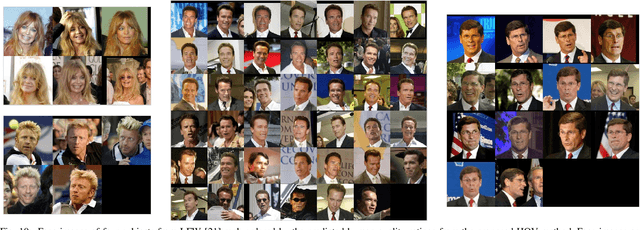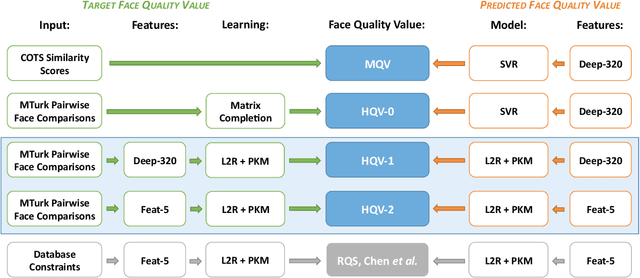Automatic Face Image Quality Prediction
Paper and Code
Jun 29, 2017



Face image quality can be defined as a measure of the utility of a face image to automatic face recognition. In this work, we propose (and compare) two methods for automatic face image quality based on target face quality values from (i) human assessments of face image quality (matcher-independent), and (ii) quality values computed from similarity scores (matcher-dependent). A support vector regression model trained on face features extracted using a deep convolutional neural network (ConvNet) is used to predict the quality of a face image. The proposed methods are evaluated on two unconstrained face image databases, LFW and IJB-A, which both contain facial variations with multiple quality factors. Evaluation of the proposed automatic face image quality measures shows we are able to reduce the FNMR at 1% FMR by at least 13% for two face matchers (a COTS matcher and a ConvNet matcher) by using the proposed face quality to select subsets of face images and video frames for matching templates (i.e., multiple faces per subject) in the IJB-A protocol. To our knowledge, this is the first work to utilize human assessments of face image quality in designing a predictor of unconstrained face quality that is shown to be effective in cross-database evaluation.
 Add to Chrome
Add to Chrome Add to Firefox
Add to Firefox Add to Edge
Add to Edge